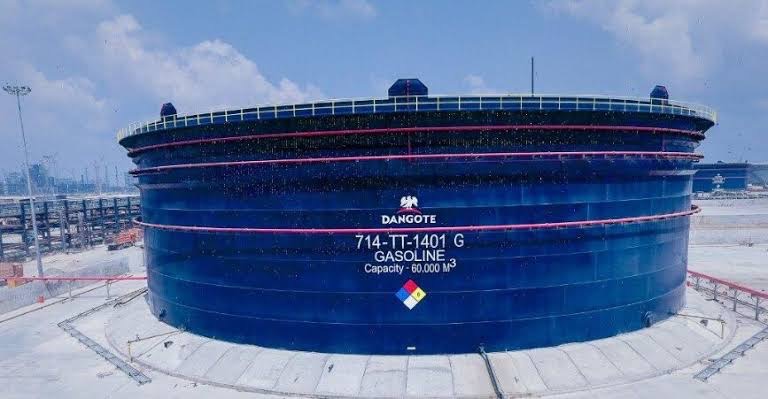KEY POINTS
- Nigeria’s Dangote Petroleum Refinery has shipped petrol to the United States for the first time, marking a significant milestone in the country’s energy sector and positioning it as a rising exporter of refined petroleum beyond regional borders.
- The refinery has sent two additional shipments to American ports, with industry officials confirming the deliveries.
- Despite this achievement, the refinery faces challenges in securing a steady supply of crude oil, which is crucial for maintaining momentum in exports.
Nigeria has taken a historic step into the global energy market, with the Dangote Petroleum Refinery shipping petrol to the United States for the very first time.
The shipment signals a new phase in the country’s oil narrative, long dominated by crude exports and fuel imports, and positions Africa’s largest economy as a rising exporter of refined petroleum beyond regional borders.
The consignment, which departed in early September, marks more than just a symbolic breakthrough. It reflects the refinery’s growing operational momentum and Nigeria’s newfound ability to play on the same stage as established refining giants.
Two additional shipments are already en route to American ports, according to industry officials familiar with the matter.
Dangote refinery’s breakthrough coincides with Nigeria’s $8.4 billion trade surplus in H1 2025
For decades, Nigeria has been locked in a paradox: Africa’s top crude producer, yet one of its largest importers of petrol. The Dangote refinery—touted as Africa’s biggest industrial project—has begun to break that cycle.
Its early exports were largely directed to neighboring African markets and parts of Europe. Now, with a foothold in the US, analysts say Nigeria’s refining ambitions are entering uncharted territory.
“This is not just a win for Dangote, it’s a win for Nigeria,” said one Lagos-based energy economist. “It shows that with the right infrastructure in place, the country can move from being dependent on imports to influencing global supply chains.”
Yet, hurdles remain. Chief among them is securing a steady supply of crude oil for the 650,000-barrel-per-day refinery, which has faced teething problems in ensuring consistent feedstock. Industry executives warn that without stable crude flows, maintaining momentum in exports could prove difficult.
Even so, the country’s broader trade performance is strengthening. Nigeria posted an $8.4 billion trade surplus in the first half of 2025, the largest in Africa, buoyed by refined product exports and robust demand for natural gas.
The milestone gives Abuja fresh leverage in its ongoing campaign to reduce its chronic dependence on dollar-denominated imports.
With Washington now added to its client list, Nigeria’s ambitions are becoming clearer: to be not just a continental supplier but a global energy player capable of reshaping trade patterns.
Whether the refinery can overcome structural challenges at home will determine if this first shipment is remembered as a one-off achievement or the start of a new era.



